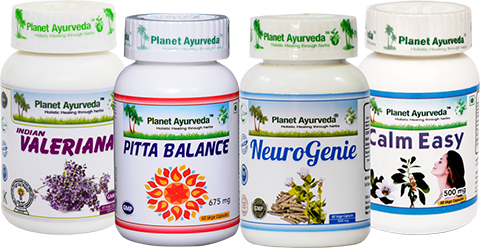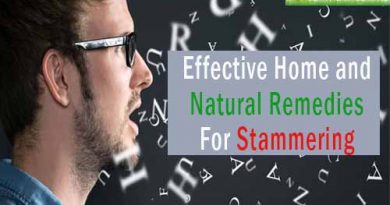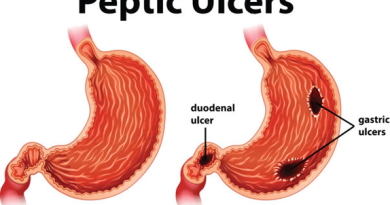How Ayurveda Helps in Managing Anxiety and Panic Attacks Naturally
Abstract
Anxiety and panic attacks are the common mental health issues. It can cause intense feelings of fear and discomfort. These attacks can happen suddenly and are often accompanied by physical symptoms like a fast heart rate, Sweating, shortness of breath, and dizziness. The causes are complex and can involve a mix of genetic, environmental, and personal factors. Anxiety and panic attacks are often linked to the body’s natural stress response being triggered too strongly. This summary looks at how anxiety and panic attacks happen, what might increase the risk of them, and how they affect people. It also reviews the main ways to treat these conditions, like therapy, medication, and lifestyle changes, which can help people manage their symptoms and feel better. Understanding these issues better can lead to more effective treatments and improved mental health.
Introduction
Anxiety and Panic attacks are widespread psychological conditions that can affect anyone, often leading to significant distress and disruption in daily life. Anxiety is a feeling of worry nervousness and unease, usually about something with an uncertain outcome, while panic attacks are sudden, overwhelming episodes of fear or Anxiety that can cause physical symptoms like a fast or irregular heartbeat, sweating, chest pain, difficulty breathing, shaking, dizziness, numbness, confusion, or a strong feeling that something terrible is about to happen. These symptoms usually reach their peak within the first ten minutes and typically last around 30 minutes, but they can sometimes last anywhere from just a few seconds to a few hours. Even though panic attacks can be very frightening, they are not life-threatening or physically harmful.

Types
1. Generalized Anxiety Disorder (GAD)
This involves constant, excessive worry about everyday activities or events, even when there’s no clear reason for concern. People with GAD may find it difficult to relax or control their anxiety.
2. Panic Disorder
This involves recurrent panic attacks—sudden, intense episodes of fear or discomfort. People with panic disorder also often worry about having another panic attack, which can make them avoid certain situations.
3. Social Anxiety Disorder (Social Phobia)
This is the intense fear of being judged or humiliated in social or performance situations. People with social anxiety may avoid social gatherings or public speaking due to the fear of embarrassment or rejection.
4. Agoraphobia
This is the fear of being in situations where escape might be difficult or where help might not be available if a panic attack happens. People with agoraphobia may avoid places like crowded areas, public transport, or even leaving their home.
5. Separation Anxiety Disorder
This is the fear or worry about being separated from loved ones, particularly in children. It can cause extreme distress when away from parents or caregivers, and might result in refusal to go to school or be apart from family.
6. Specific Phobias
These are intense, irrational fears of specific objects or situations, such as flying, heights, or spiders. People with specific phobias will go to great lengths to avoid what they fear, causing significant distress in their lives.
7. Selective Mutism
This is a condition in which a person, usually a child, consistently refuses to speak in certain social situations (like at school), even though they can speak comfortably in other settings (like at home).
Causes
The causes of panic attacks can vary, but they typically result from a combination of factors. Here’s a breakdown of potential causes:
- Genetics: Family history can play a role. People with relatives who have anxiety or panic disorders are more likely to experience them themselves..
- Stressful life events: Major life changes, like moving, a breakup, or the death of a loved one, can trigger panic attacks. Chronic stress can also increase the likelihood of experiencing them.
- Brain chemistry: An imbalance in brain chemicals, such as neurotransmitters, can contribute to anxiety and panic disorders. These chemicals help regulate mood, and disruptions can lead to heightened anxiety responses.
- Health conditions: Certain physical health conditions, like heart disease or respiratory problems, can cause symptoms similar to those of panic attacks, and people may become more prone to panic in response.
- Phobias and triggers: People with specific phobias (e.g., fear of flying, crowds, or heights) may experience panic attacks in situations where they are exposed to their fear. These situations act as triggers for an attack..
- Hyperventilation: Breathing too quickly or shallowly (often due to anxiety) can bring on feelings of dizziness or chest tightness, which can mimic the physical symptoms of a panic attack.
- Sensitivity to bodily sensations: Some people are more sensitive to physical sensations (like a rapid heartbeat or dizziness), and this sensitivity can trigger a panic attack. For example, if someone feels their heart racing, they might interpret it as a sign of danger, which increases anxiety and triggers a full-blown attack.
- Substance use or withdrawal: Using drugs, alcohol, or caffeine, or withdrawing from them, can contribute to panic attacks. Stimulants, in particular, can increase anxiety.
- Childhood trauma or emotional experiences: Past experiences of trauma, abuse, or neglect can increase the risk of developing panic attacks later in life.
- Environmental factors: Living in environments with high levels of stress, noise, or even pollution may contribute to the development of anxiety and panic attacks.
Symptoms
Anxiety can show up in many different ways, both physically and emotionally. Everyone experiences anxiety differently, Some of the common symptoms are
Physical Symptoms
- Increased heart rate
- Tightness in Chest
- Shortness of breath
- Sweating
- Dry Mouth
- Dizziness
- Shaking
- Cold Hands
- Nausea
- Headaches
- Fatigue
- Insomnia
- Stomach Upset
Mental Symptoms
- Restlessness
- Irritability
- Excessive worry
- Trouble in concentration
Behavioral Symptoms
- Difficulty in making a Decision
- Compulsive and obsessive thoughts
- Overthinking
- Avoidance of social situation
- Excessive talking
- Escaping into distraction
Diagnosis
The diagnosis of anxiety disorders typically involves the following steps:
- Medical Evaluation: The doctor will assess your symptoms, medical history, and conduct a physical exam to rule out other health issues.
- Exclusion of Physical Conditions: Tests may be conducted to eliminate physical causes of symptoms (e.g., thyroid issues), but no lab tests can directly diagnose anxiety.
- Referral to Mental Health Professionals: If no physical cause is found, you may be referred to a psychiatrist or psychologist for further evaluation.
- Psychological Assessment: Mental health professionals will interview you and use tools like questionnaires to assess the severity and impact of your symptoms.
- DSM-5 Criteria: Diagnosis follows criteria from the DSM-5, focusing on symptom duration, intensity, and their impact on daily life.
- Screening for Children and Adolescents: The U.S. Preventive Services Task Force recommends anxiety screening for children and adolescents ages 8-18 years.
Treatment
Treatment for Anxiety Disorder typically involves a combination of therapies, lifestyle Changes, and sometimes medications depending on the severity and types of Anxiety.
1. Therapy
- Cognitive Behavioral Therapy (CBT)
- Acceptance and Commitment Therapy (ACT)
- Exposure Therapy
2. Medications
- Selective Serotonin Reuptake Inhibitors (SSRIs)
- Serotonin- Norepinephrine Reuptake Inhibitors (SNRIs)
- Benzodiazepine
- Beta-Blockers
- Buspirone
3. Lifestyle Changes
- Exercise
- Healthy diet
- Sleep
- Relaxation Techniques
Ayurvedic Overview of Anxiety and Panic Attacks
- According to Ayurveda, Anxiety can be correlated to Chittidvega. In this, ‘Chitta’ means Mind and ‘Udvega’ means Stress, Anxiety. It is a state of anxious or stressed full mind.
- Acharya Charaka has mentioned Chittodvega as one of the mental disorders. It is developed due to vitiation of Raja and Tama guna along with Vata and Pitta.
Causes (Nidana)
Manasika Vikara (Mental disorder) basic pathological factors are Rajas and Tamas. Factors that vitiate these two are:-
- Asatmyendriyarthasamyoga (Excessive or deficient use of sense)
- Pragyaparadha (Volitional Transgression)
- Parinama (Deficient or excessive incidence of season )
Symptoms
Symptoms of Chittodvega are as follows
- Shira Shoonyata (Mind becoming blank)
- Ucchawasasyadhikyam (Increased respiration)
- Udvega (Palpitation)
- Dhyana (Apprehension)
- Haridgraha (Feeling of Tightness in heart)
- Unmattchittatvam (Inability to concentrate)
- Annabhilasa (Anorexia)
- Sammoha (illusion)
- Avipaka (Impaired digestion)
- Swanokarnayo (Tinnitus)
Treatment For Anxiety
1. Preventive measures
- Sadvritta (good Conduct)
- Achara Rasayana (Moral and Behavioral Conduct)
- Dharaniya Vega Vidharana (Urges which should be controlled)
2. Curative measures
- Daivavyapashraya chikitsa (Divine Therapy)
- Yuktivypashraya chikitsa (Rational Therapy)
Management Through Drugs
Antah Parimarjana (Internal )
1. Shodhana
- Virechana
- Vasti
- Nasya
2. Shamana
- Brahmi Ghrita
- Maha Kalyanak Ghrita
- Lahsunadya ghrita
- Kushmanda Ghrita
- Ashwagandharishta
- Saraswatarishta
- Shankhapushpi pankh
- Brahmi Rasayana
3. Bahi Parimarjana Chikitsa (External Therapy)
- Abhyanga (oil Massage)
- Swedana Chikitsa (Sudation therapy)
- Shirodhara ( pouring medicated liquid over the head)
Herbal Remedies for Anxiety and Panic Attacks By Planet Ayurveda
Planet Ayurveda is a renowned Ayurvedic company that specializes in natural health products based on ancient Ayurvedic Principles. It is a GMP certified company. Planet Ayurveda focuses on using 100% natural, chemical-free and preservative-free. All their formulations are prepared under the supervision of MD (Ayurveda ) scholars and their formulations are formulated based on on the the ancient Ayurvedic texts and principles. Planet Ayurveda emphasizes sustainable sourcing of herbs and plants and practices an ethical manufacturing process to maintain purity and potency. Planet Ayurveda helps to maintain chronic conditions through their best formulations. One of their best formulations is the Panic care pack, which specifically helps to manage and reduce symptoms associated with panic attacks and anxiety.
Product Description
1. Neurogenie Capsule
This capsule is standardised pure extract of Brahmi ( Bacopa Monnieri), and Ashwagandha (Withania Somnifera). All these herbs used in this capsule are known for their calming and stress-reducing properties. Brahmi is renowned for enhancing cognitive function, reducing stress and improving mental clarity. Ashwagandha is an Adaptogen that helps the body cope with stress and anxiety.
Dosage: 1-2 capsules two times a day with Normal water after a meal
2. Calm Easy Capsule
These capsules are standardised pure extract of Brahmi (Bacopa Monnieri), Tagar (Valeriana wallichii), Ashwagandha ( Withania Somnifera). Ashwagandha is an adaptogen that helps the body adapt to stress and anxiety, promoting mental calmness. Tagara is known for its soothing properties, supporting restful sleep and reducing nervous tension. Brahmi enhances mental clarity, reduces stress, and improves cognitive function. Thus, all these herbs help to control Anxiety and Panic Attacks
Dosage: 1-2 Capsules two times a day
3. Pitta Balance
This Capsule is a pure extract of Jahar Mohra Pishti (Natural Calcium Compound), Kaharava Pishti (Natural Calcium Compound), Akik Pishti (Agate Compound), Mukta Pishti (Calcium Compound from Perls), Giloy satva (Tinospora Cordifolia). This capsule helps to balance pitta dosha in the body. In Ayurveda, Pitta is associated with the elements of fire and water and is linked to qualities like heat, intensity, and energy. An imbalance in Pitta can lead to symptoms such as irritability, anger, frustration, and heightened anxiety. This supplement is formulated to calm and balance Pitta, which in turn helps reduce emotional stress and anxiety.
Dosage: 1-2 Capsules two times a day, with normal water after a meal.
4. Indian Valeriana
This capsule is pure extract of Tagar (Valeriana Wallichii). This herb is widely used for its calming and stress-relieving properties. It is often used in formulations aimed at addressing anxiety, insomnia, and nervous tension. The root of Indian Valeriana contains compounds that have a sedative effect on the nervous system, making it effective in promoting relaxation, reducing stress, and improving sleep quality.
Dosage: 1-2 capsules two times a day with normal water, after a meal.
Conclusion
In Conclusion, Ayurvedic medications focus on restoring balance in the body, mind, and spirit. It treats Anxiety by addressing its root Cause. Ayurveda offers a natural and effective solution for the management of Anxiety. It provides internal treatments like its Classic formulations, panchkarma therapies, and Planet Ayurveda’s Panic Care pack, and external treatments like Abhyanga (Oil Massage), Shirodhara ( pouring medicated liquid over the head) etc. So, Ayurveda has the best and safest treatment for Anxiety and Panic attacks.







